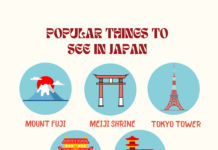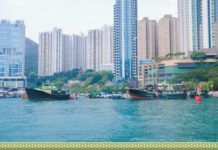Why visit Bhutan? Good question. The country is far away, it’s hard to get to, securing air and visa is complicated, getting from A to B within Bhutan is not easy, you have to deal with altitudes of 7,000 to 9,000 ft to get most places, and it’s not inexpensive. Having said all of this, the rewards far exceed the negatives.
Here are 10 reasons to visit Bhutan:
Bhutan is probably the most authentic surviving Himalayan kingdom in existence. Because the country was closed to the world for centuries, Bhutan has preserved its culture, religion, traditions, far better than other nearby kingdoms such as Nepal, Sikkim, or Ladakh.
Festivals. Bhutan has a number of ‘tsechus’, or major festivals that last 4-5 days. These are world-famous, and usually take place in spring and fall. The festivals in Paro, Thimpu, and Punakha are the most famous. Because the festivals are governed by the lunar calendar, dates change every year. There is great interest in attending these festivals, so if you have clients that are interested, book way ahead, 1 year out at least, to secure hotel and air space.
Landscapes. Although Bhutan is small (a little smaller than Switzerland), it offers a wide range of climates and terrains, from subtropical rain forest all the way to snow covered peaks over 20,000 ft tall. Most of the country is covered by endless pine forests, with the snow-covered Himalayas in the distance.
Hiking and trekking. Bhutan is paradise for outdoor enthusiasts, and offers some of the finest hiking and trekking anywhere in the region, from half day to full day to multi-day itineraries. The most famous hike of all is in the hike to the Tiger’s Nest (Taktshang Goemba) Monastery in the western part of the country.
Wildlife, especially bird watching.
Architecture. Throughout the country, every effort has been made to keep the traditional Bhutanese style of architecture. The fortress-monasteries in Paro and Punakha are world heritage sites and justifiably famous.
Shopping, particularly textiles and jewelry.
Gross National Happiness. Instead of a focus on GNP, Bhutan’s rulers focus on improving and measuring the happiness of its citizens. Bhutan is not paradise, by any stretch of the imagination, but the government has gone a long way to care for its citizens in ways that are enlightened and citizen-focused. Health care and education are free, for example. 60% of the country is made up of nature reserves or national parks. Most people speak English, in addition to their native language. The sale of cigarettes is forbidden. It’s clean. There is very little crime. You do not see the poverty you encounter in India. You will not see any billboards on the highways, other than signs telling you not to fall asleep at the wheel. I did not see one McDonald’s or Starbucks or Western chain store during my travels.
The people. I found the Bhutanese to be warm, welcoming, and unassuming. If you walk through rice fields in the middle of the countryside, farmers and children will invariably greet you and want to know where you are from.
Space. There are only 750,000 people living in Bhutan, spread out over a mountainous terrain. Chances are, when you are out and about hiking and trekking, you may not see a soul for hours. There is no mass tourism. Last year, only 57,000 foreign visitors flew in.
Browse Bhutan tour packages and vacations.
Practical Advice for Bhutan Travel
- Plan way ahead. You first have to book your hotel in Bhutan. Once you have this, the hotel will secure your air reservations to/from Bhutan, and once all of this is in place, then the hotel/ground operator secures your visa. The visa comes at the last minute, via email. I got my visa only 2 weeks prior to landing in Bhutan. Because there is a limited number of good hotels and demands exceeds supply, planning ahead is a must.
- Peak season is spring (March to May) and fall (September and November)
- Air. The only airlines that fly into Bhutan are Druk Air/Royal Air Bhutan and Bhutan Airlines. Of the 2, Druk Air has the better reputation. Having said this, allow 1 extra day at both ends of your Bhutan trip ‘just in case’. There are weather-related delays which at times can delay your flights in/out by 6-12 hours. To be safe, do not book a connection into / out of Bhutan the same day you are supposed to fly in/out of Paro. (Yes, dear reader, I booked a connection the same day I was supposed to leave Bhutan, and found myself re-routing via Calcutta after much dramarama and spending a fortune on a new ticket to get me to Delhi as originally planned.)
- If flying from Kathmandu or Delhi, sit on the left (A seats) to see Mt Everest.
- Main gateways with service to Paro are: Delhi, Bangkok, Singapore, Kathmandu
- Cost. You have to spend at least $250 per day/per person, including hotel, meals, activities.
- Elevation: Paro is over 7,000 ft high. Punakha is lower, around 4,000 ft high. Take 2 aspirin about 30 minutes before landing, to ease into the altitude. Avoid alcohol, especially with dinner. Try to have your main meal for lunch, and have a light supper.
- Rainy season is from July to September. Having said this, It typically rains in the afternoons, not all day. Hotels offer specials during the summer, which is low season.
- In winter, temperatures in Paro can dip below freezing at night, with some snow. Winter is also a great time to visit, as it is not as crowded or expensive.
- Bring motion-sickness pills, for the long drives through winding roads between Paro/Thimpu and Punakha.
- The local currency is the Ngultrum NU, pegged to the Indian Rupee. I used USD (cash and credit cards) and got along fine. There are a few ATMs in Paro and Thimpu. If you buy Ngultrums, make sure you change them at the airport as they are worthless outside Bhutan.
Shared by Igancio Maza from Signature Travel Network








